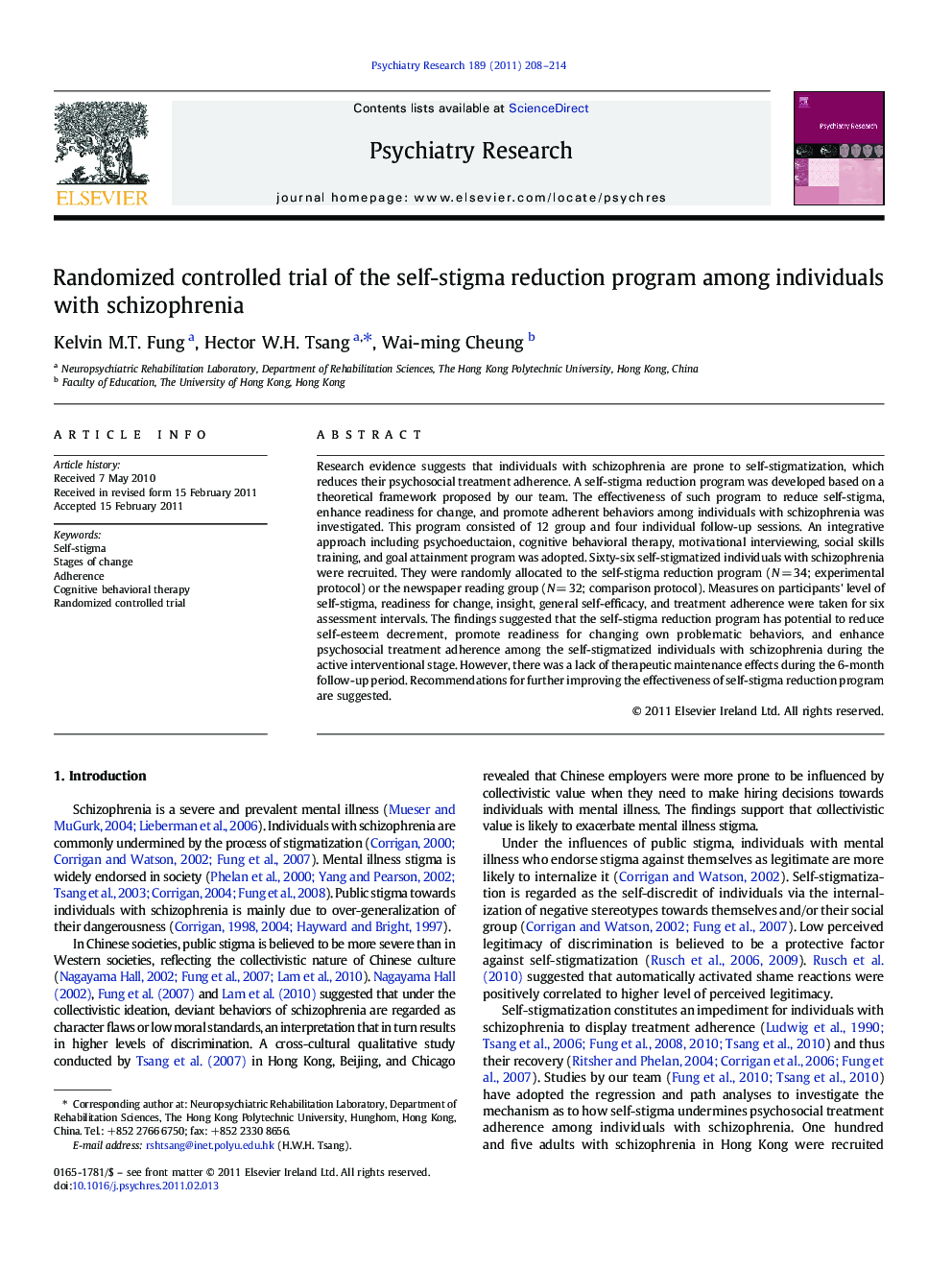| Article ID | Journal | Published Year | Pages | File Type |
|---|---|---|---|---|
| 333728 | Psychiatry Research | 2011 | 7 Pages |
Research evidence suggests that individuals with schizophrenia are prone to self-stigmatization, which reduces their psychosocial treatment adherence. A self-stigma reduction program was developed based on a theoretical framework proposed by our team. The effectiveness of such program to reduce self-stigma, enhance readiness for change, and promote adherent behaviors among individuals with schizophrenia was investigated. This program consisted of 12 group and four individual follow-up sessions. An integrative approach including psychoeductaion, cognitive behavioral therapy, motivational interviewing, social skills training, and goal attainment program was adopted. Sixty-six self-stigmatized individuals with schizophrenia were recruited. They were randomly allocated to the self-stigma reduction program (N = 34; experimental protocol) or the newspaper reading group (N = 32; comparison protocol). Measures on participants' level of self-stigma, readiness for change, insight, general self-efficacy, and treatment adherence were taken for six assessment intervals. The findings suggested that the self-stigma reduction program has potential to reduce self-esteem decrement, promote readiness for changing own problematic behaviors, and enhance psychosocial treatment adherence among the self-stigmatized individuals with schizophrenia during the active interventional stage. However, there was a lack of therapeutic maintenance effects during the 6-month follow-up period. Recommendations for further improving the effectiveness of self-stigma reduction program are suggested.
